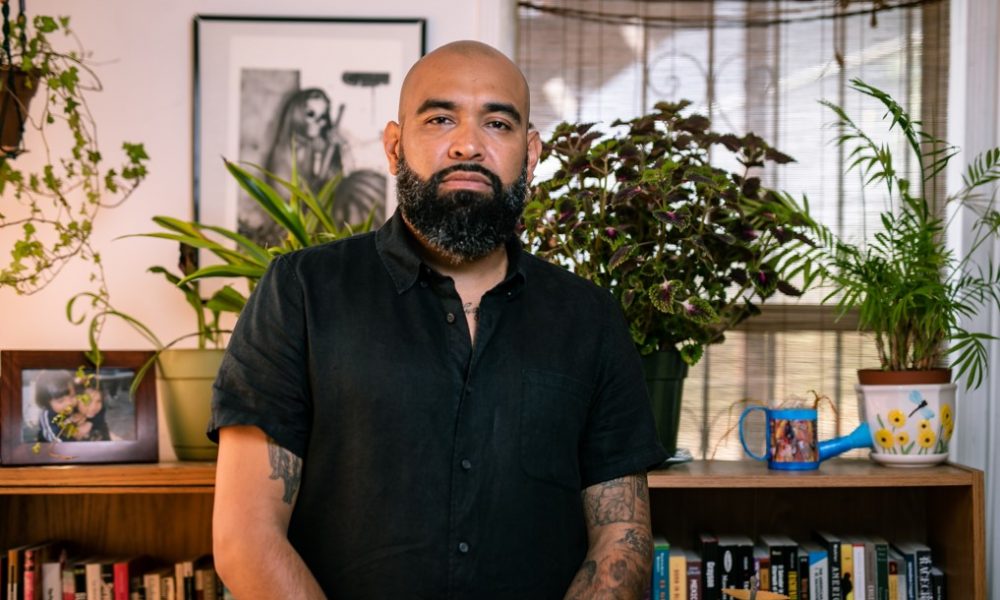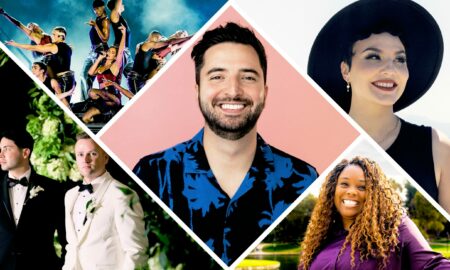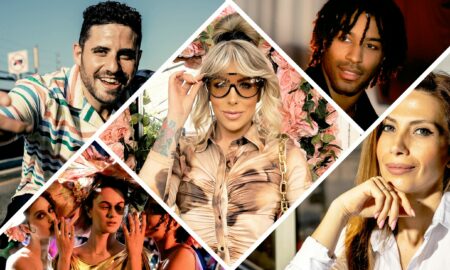

Today we’d like to introduce you to Steven Osuna.
So, before we jump into specific questions, why don’t you give us some details about you and your story.
I come from a family that contradicts normative concepts ascribed to it, from what some would call a “broken home,” but definitely not me. I grew up in a female-headed, single parent household, near downtown Los Angeles. In this home, and neighborhood of Echo Park (pre-gentrification), my education began. My academic education at California State University, Los Angeles and at the University of California, Santa Barbara, further equipped me to pursue my career as a professor, activist-intellectual, and mentor in the Department of Sociology at California State University, Long Beach.
My mother, Guadalupe, migrated from Mexico, and my father, Ramon, from El Salvador. As many migrants, they settled in a new place as a strategy to seek employment and better life chances to support their families back home. Despite the difficulties of single parenting, my mother provided my older brother, Carlos, and me with food, shelter, clothing, love, and knowledge. During my upbringing, I spent most of my summer and winter breaks from school working alongside her as a domestic worker. My mother’s paid reproductive labor, considered part of the informal economy, helped sustain the formal economy of Los Angeles and has left me an obstinate memory of her struggle to give my brother and me a better life than the one she had. Her selflessness determines my own commitment to assist others in their endeavors as a professor at the CSU system.
Great, so let’s dig a little deeper into the story – has it been an easy path overall and if not, what were the challenges you’ve had to overcome?
Growing up working class in Los Angeles had its ups and downs, but I would not want it any other way. I attended Belmont High School in downtown L.A. The school was the largest in Los Angeles and California at that time, with a predominately Latina/o/x student population. Unfortunately, the dropout rate was above 50%. In this context my older brother’s encouragement to pursue higher education was instrumental in helping me graduate from high school and enroll at CSULA. Through the Educational Opportunity Program’s (EOP) Summer Bridge Program at CSULA, I learned to see and value education as a human right. The struggles of lacking certain economic, social, and political resources, as a working class, migrant-lead household should not be idealized, but neither pitied. It definitely taught me a lot about the social world. This experience led me to seek out a deeper understanding of everything around me. It was not a smooth path to receive a PhD and become a professor, but this tortuous path prepared me for where I am today.
We’d love to hear more about your work and what you are currently focused on. What else should we know?
As a professor, activist-intellectual, and mentor in the Department of Sociology at California State University, Long Beach, I teach courses on immigration, critical criminology, social theory, and travel to Havana, Cuba to teach a study abroad course. My teaching and research are centered in a preferential option for the poor, social justice, and critical thinking. I encourage my students to think beyond what they have been socialized to know about the world. I also hope that by employing a sociological lens to their social world, students will feel compelled to become agents of social change in the paths that they follow after college.
As a professor guided by social justice, I am also a member of grassroots organizations that seek to make social change in the world to improve the conditions that many face. I am a member of the Human Rights Alliance for Child Refugees and Families (HRA) that organize with Central American refugees, and also a member of the Philippines-US Solidarity Organization of Southern California (PUSO-SoCal). These grassroots organizations are small and volunteer-based, but its members all believe that solidarity with oppressed people is our duty. Each organization is part of larger international alliances, such as the International Migrants Alliance (IMA) and the International Coalition for Human Rights in the Philippines (ICHRP). My academic and activism have allowed me to travel throughout the U.S., Latin America, Europe, and Southeast Asia. I always remind my students that we must not only learn about the world, we have to change it to create just and lasting peace.
Is there a characteristic or quality that you feel is essential to success?
My success in my career and personal life come from the support, mentorship, and care that others have given me. I would not be where I am if not for the countless amount of people who have not only provided material support, but also inspiration, love, and emotional labor. I think an important quality or characteristic that is important is being able to recognize that we all need each other; that we can’t exist alone. We need each other in this world to make it. The idea of “self-made” or “boot-straps” is cruel. My success has only been attainable because my community has supported me.
My life has been shaped by my mother’s sacrifices and its connection to the resiliency of all migrant working class women and aggrieved communities. Their determination to do more than just simply survive, but maintain and foster their dignity and self-respect, is what keeps me believing that a better world is possible. It simultaneously inspires and transpires into my research and teaching interests, as well as my activism. The teaching, mentorship, and support I provide, reciprocal to that which I have received in my life, reminds me of the reasons why I chose this profession and life path. I once asked an elderly man in a bookstore in Leimert Park how he was doing. He quickly responded: “I’m still learning!” This left a long lasting impression in my life. It reminded me that I will always be a student of the world and of the working people who make it go round.
Contact Info:
- Website: http://www.cla.csulb.edu/departments/sociology/faculty/dr-steven-osuna/
- Email: [email protected]
- Instagram: @puso.socal; @ichrp-us; @humanrights_alliance; @ima.us



 Image Credit:
Image Credit:
Romeo Hebron, romeoherbron.com
Suggest a story: VoyageLA is built on recommendations from the community; it’s how we uncover hidden gems, so if you or someone you know deserves recognition please let us know here.



















